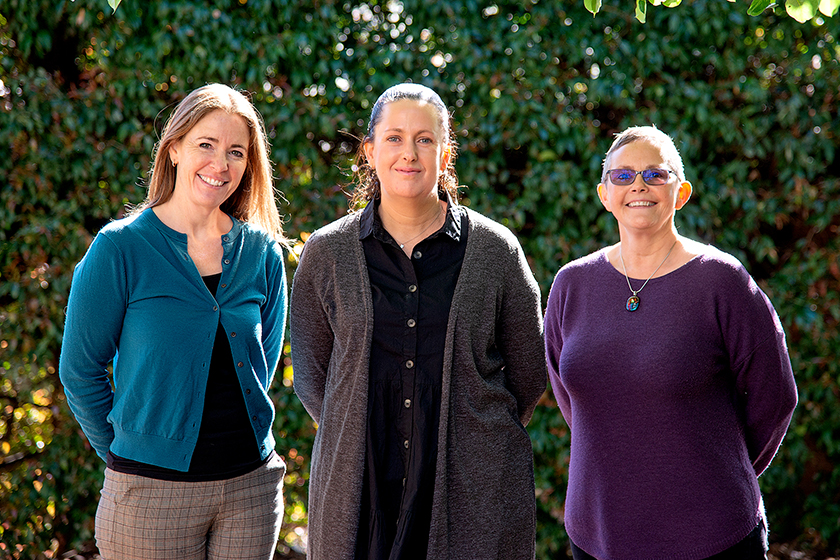
Being told you or a loved one will need to receive palliative care can turn your world upside down.
A diagnosis of a serious illness can be difficult to get your head around on its own, but working out the best course of care can raise more questions than answers.
Bendigo Health’s newly appointed Palliative Care Liaison nurses (PCLN) are here to help guide patients and their families through what can be a tough time.
Alison Smith, who manages the organisation’s Specialist Palliative Care Service, hoped nurses Kathy Griffin and Kye Watson, along with nurse practitioner Joanna Lane Welsh (pictured above), will do just that.
“There’s a lot of experience here,” Alison said.
“Having them here will allow us to build relationships not only with the patients, but with other services in the region.”
The nurses boast more than 35 years’ of work in a range of palliative care roles between them.
Part of the Loddon Mallee Regional Specialist Palliative Care Consultancy Service (LMRSPCCS), the nurses will provide more support and care coordination for inpatients at Bendigo Health.
“We want to ensure a smooth transition into care,” Joanna said.
“The aim is to improve outcomes and support with palliative care in the in-patient setting. There was always a consultancy service, but this is adding and strengthening the existing model.”
The nurses will go between primary providers and hospital medical teams and help to provide in-depth patient-centred symptom assessment, guidance, education, communication, anticipatory care and referral to achieve patients preferred place of care and preferred place of death.
This role will assist with the moves within and between services including across the wider regional hospitals, Specialist Palliative Care Evaluation Unit, home and aged care facilities.
“They support a patient’s transition from across the region into their preferred placements,” Alison said.
Patients and their families will have more access to not only the PCLN themselves, but LMRSPCCS specialist support who can help them through their journey from hospital to other regional palliative care teams.
This role will foster relationships into regional areas for improved patient outcomes and discharge planning.